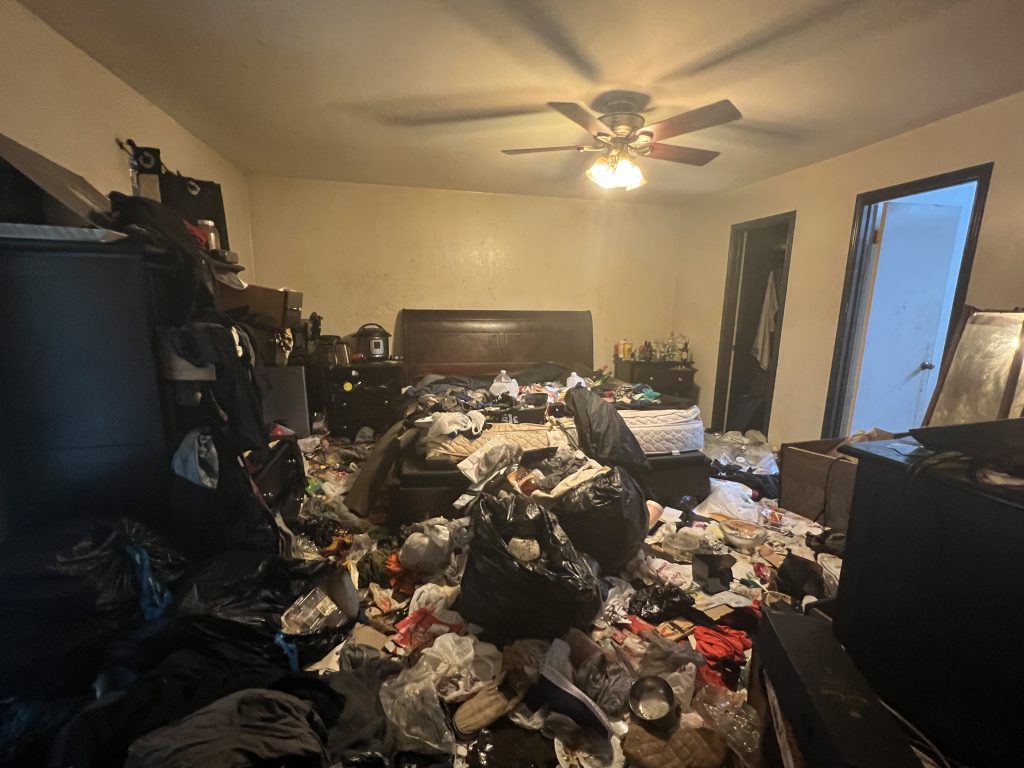What is a squatter? How to sell my house that has squatters
Posted on May 5, 2022 by Amanda Gladin

Have you ever wondered “what is a squatter?” I wish this could be summed up in a short sentence, but unfortunately squatters are anything but simple.
In this post I’ll share what a squatter is, how they get rights and what those rights are, who can become a squatter, what the risks are, how to remove a squatter, and what to do if you have a vacant house at risk of being squatted.
What is a squatter?
A squatter is someone who takes residency in a property that does not belong to them. They are not a tenant, however if caught early enough they can be evicted like one.
What are squatters rights?
Squatter’s Rights, also known as Adverse Possession, allows a person to claim legal possession of your property. They can only do this if they have occupied your property for a certain amount of time and have met the conditions set out by Texas law. When a squatter claims legal possession of your property, they do not have to pay for it. (Source)
In the state of Texas, possession is 9/10 of the law. Depending on the duration the time someone has stayed there, if they maintained the house, if they’ve been paying the taxes, etc. then the state of Texas might consider that person a legal owner of the property.
This is because vacant houses can become a hazard. The city has a choice to either board the house and demo it, or they can allow the squatter to stay there if they are upkeep of the property. The latter is a cheaper and better option for the state…But not for YOU if you’re the property owner!
Side note: this is one reason it’s important to rent or sell any vacant properties you own.
Who can become a squatter?
A squatter could be someone you know or someone you do not know. For example, an unwanted family member or friend could take up residence in the property and claim squatter’s rights. Or, homeless people looking for a place to keep warm or away from the elements. Or just to have some sense of home life.
Either way they can be a hassle getting out of a property. Sometimes in real estate we have to work with sellers to remove squatters from properties that were left vacant, but are now being occupied by someone other than a tenant.
Wouldn’t you love it if the cost of providing a roof over your head had no monetary cost? I can assure you that little voice in their mind, if they are sane, is full of anxiety and worry as to when the inevitable will eventually happen.
However, some people are just not built with that compass.
Sadly even people who have mental health issues become squatters.
What kinds of houses are at risk for squatters?
Oftentimes, squatters notice a house is vacant, and just as thieves are known to case a property they are going to burglarize, squatters do the same thing, but never leave the house.
How do you remove a squatter?
If you catch someone squatting on your property early enough, you can evict them like you would a tenant. Ultimately, as soon as someone steps foot on your property and stays the night…technically that becomes their residence or homestead.
The more invested the squatter is and the longer they stay, the more likely the state will consider them a legitimate owner. If the squatter remains on the property for 10 years uninterrupted, they can file for “adverse possession” and legally become the owner.
If you own a vacant house, make sure to sell it or carefully maintain it to make sure that no one starts living in the property.
Keep in mind that their standard of living may not be the same as yours. Many people are just happy to have a roof over their head – even if there’s no floor!
Can you sell a house with a squatter?
Yes! Absolutely. An investor would step in, purchase the property, and then start the process on their own.
The exception is that IF the squatter files for adverse possession and is awarded ownership of the property, they are the legal owner and the property cannot be sold by you.
Do you have a squatter in your property, or a vacant property you don’t want to lease, fix or maintain?
Call us CALL TO ACTION

